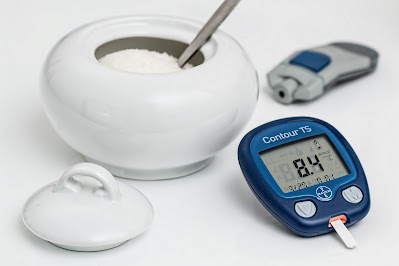Insulin sensitivity refers to the body's ability to respond to insulin, a hormone that helps regulate blood sugar levels. When insulin sensitivity is high, the body is able to use insulin effectively to transport glucose (sugar) from the bloodstream into the cells, where it can be used for energy.
On the other hand, when insulin sensitivity is low, the body's cells become resistant to insulin, meaning that they don't respond as well to the hormone. This can lead to high blood sugar levels, as the glucose remains in the bloodstream rather than being transported into the cells.
Insulin sensitivity can have an impact on weight and fat loss because insulin is involved in the regulation of fat storage and metabolism. When insulin levels are high, the body is in a "storage" mode, meaning that it is more likely to store excess glucose as fat rather than burning it for energy. Additionally, insulin resistance is often associated with increased levels of inflammation, which can make it more difficult to lose weight and burn fat.
Improving insulin sensitivity can be helpful for weight and fat loss. This can be achieved through a healthy diet, regular exercise, and adequate sleep. Eating a balanced diet that is low in refined carbohydrates and high in fiber can help to regulate blood sugar levels and improve insulin sensitivity. Engaging in regular physical activity can also help to improve insulin sensitivity, as exercise increases the body's ability to use glucose for energy. Finally, getting enough sleep is important for regulating hormones, including insulin, and improving overall health.
Weight Loss Without Starvation - All About Mediterranean Diets, Belly Fat Burning Foods, Healthy Eating Vegan No Carbs Diets To Lose Weight Fast, Lose Belly Fat Fast, Lose Fat Quickly Without Lethargy.
Monday, April 17, 2023
How Does Insulin Sensitivity Effect Weight Loss
Subscribe to:
Post Comments (Atom)

No comments:
Post a Comment